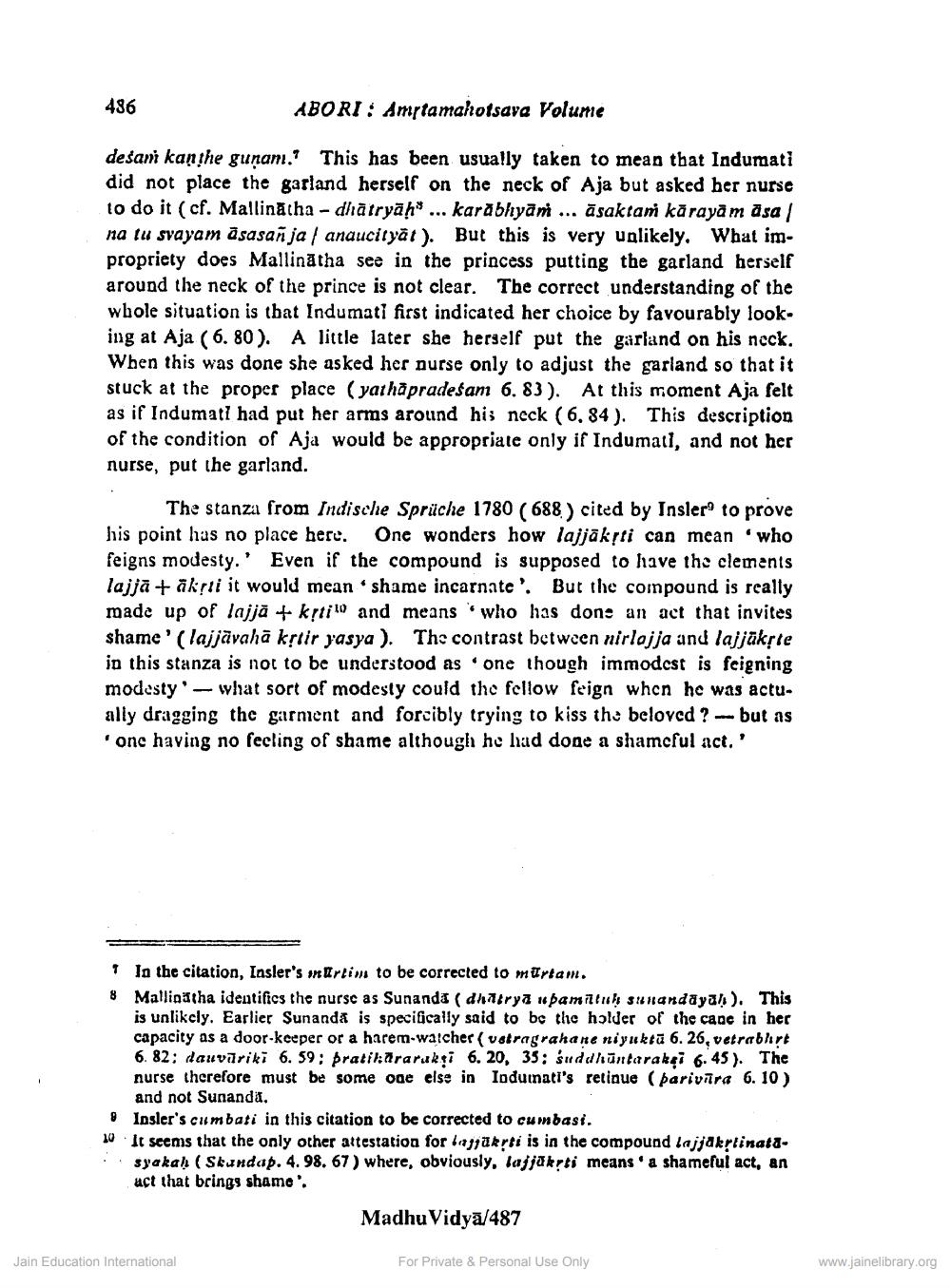________________
436
ABORI: Amptamahotsava Volume
desam kanthe guņam. This has been usually taken to mean that Indumati did not place the garland herself on the neck of Aja but asked her nurse to do it (cf. Mallinatha - dhatryah* ... karabhyāni ... āsaktam kā rayam asa / na tu svayam āsasanja / anaucilyat). But this is very unlikely. What impropriety does Mallinātha see in the princess putting the garland herself around the neck of the prince is not clear. The correct understanding of the whole situation is that Indumati first indicated her choice by favourably look. ing at Aja (6.80). A little later she herself put the garland on his neck. When this was done she asked her nurse only to adjust the garland so that it stuck at the proper place (yat hāpradeśam 6.83). At this moment Aja felt as if Indumatl had put her arms around his neck (6,84). This description of the condition of Aja would be appropriate only if Indumati, and not her nurse, put the garland.
The stanza from Indische Sprüche 1780 (688) cited by Insler to prove his point has no place here. One wonders how lajjāksti can mean who feigns modesty.' Even if the compound is supposed to have the clements lajjā + aksi it would mean .shame incarnate'. But the compound is really made up of lajjä + kştilo and means who has done an act that invites shame' (lajjāvahā kştir yasya ). The contrast between nirlajja and lajjākļie in this stanza is not to be understood as one though immodest is feigning modesty' - what sort of modesty could the fellow feign when he was actually dragging the garment and forcibly trying to kiss the beloved ? -- but as one having no feeling of shame although he had done a shameful act.'
In the citation, Insler's mErtim to be corrected to murtam. 8 Malliaatha identifics the nurse as Sunando ( dhatrya upamilih sunandayan ). This
is unlikely. Earlier Sunanda is specifically said to be the holder of the case in her capacity as a door-keeper or a harem-watcher (ustragrahane niyukta 6.26, vetrablert 6.82; dauväriki 6.59: pratikararuki 6.20, 35; suddhūntarakti 6.45). The nurse therefore must be some one else in Ioduinati's retinue (parivira 6.10 )
and not Sunanda. 8 Ipsler's cumbati in this citation to be corrected to cumbasi. 10 It seems that the only other attestation for bajakrti is in the compound lajjaktlinata.
syakah (Skundap. 4.98. 67 ) where, obviously, lajjakrti means a shameful act, an act that brings shame'.
Madhu Vidyā/487
Jain Education International
For Private & Personal Use Only
www.jainelibrary.org




